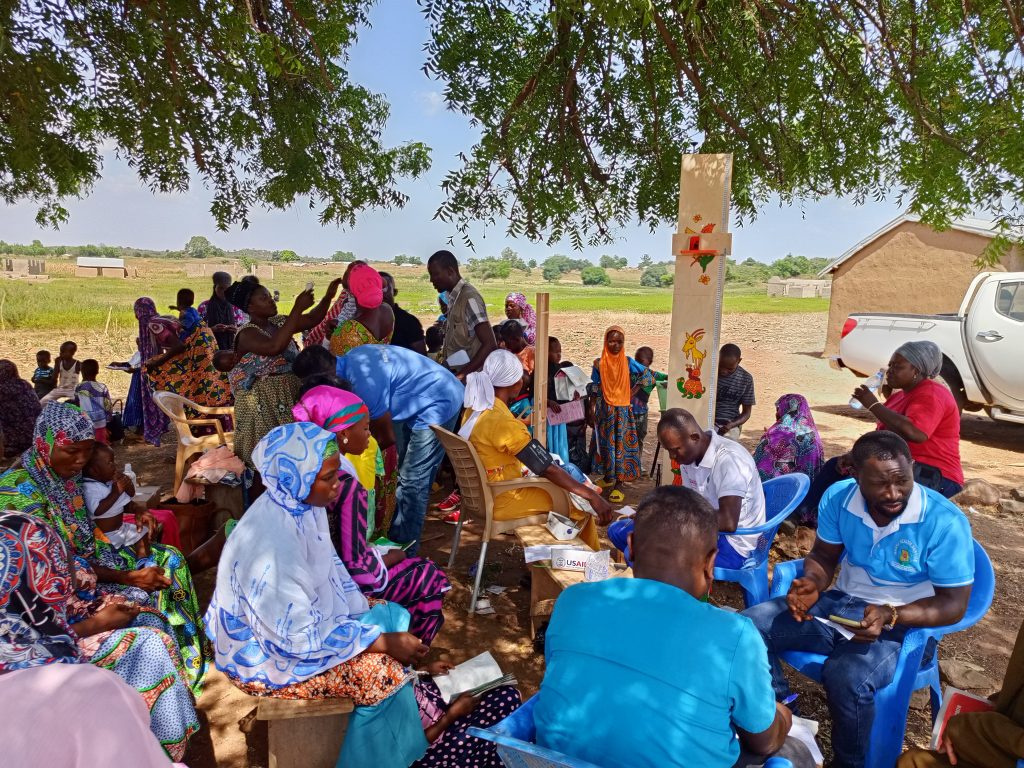By Godfred A. Polkuu
Tarikom (U/E), Nov 13, GNA-The Upper East Regional Health Directorate of the Ghana Health Service (GHS), has screened refugees in five Districts of the Region for various health conditions.
The refugees, including children below five years, were screened for malnutrition and assessed to identify those who were not vaccinated against childhood killer diseases.
Pregnant women among the asylum seekers were also offered Ante-Natal Care services while adolescents were screened and linked to health facilities for adolescent health services.
The week-long screening exercise was funded by UNICEF and involved health personnel of the GHS who screened the asylum seekers in the Bawku West District, Binduri, Pusiga, Garu and Tempane Districts.
Communities in the five Districts recorded an influx of about 4000 Burkinabés from nearby communities such as Zabre, Bugri and Zoago in Burkina Faso, following suspected terrorist attacks in that country.
Even though some of the Burkinabés who sought asylum in the Districts had returned to their home country, several of them were still in camps at Tarikom and Sapeliga in the Bawku West District, and communities in the Binduri, Garu, Pusiga and Tempane Districts.
Madam Gloria Yvonne Kobati, the Regional Nutrition Officer, who led a team of officials to monitor the exercise at the respective camps, told the Ghana News Agency (GNA) that the exercise across the five districts was so far successful.
She said apart from the camps, some of the migrants lived among natives in the districts, saying, “We definitely cannot screen only the migrants and leave the indigenes, so we screen both indigenes and migrants in the camps and communities.”
She said even though the Directorate had yet to collate and analyze the data from all five districts, “Fortunately some of those who have undergone the screening are not too bad in terms of nutritional status.
“A lot of the children have also taken the immunizations,” Madam Kobati added.
She said the only challenge they faced was the low number of migrants at the respective camps and attributed the situation to the season.
“It is a harvesting season, so most of the migrants have gone back to their farms to harvest. So our only challenge is the numbers we are seeing,” she told the GNA.
Madam Kobati recalled that during their preparations for the exercise, they recorded over 800 migrants in one camp, but subsequently, the numbers decreased.

She expressed gratitude to UNICEF for the support in undertaking the exercise and was hopeful that with UNICEF’s continuous support to the GHS, they would reach out to all the asylum seekers in the districts.
She said health officials would continue to visit the camps and homes to render healthcare services after the assessment.
Mr Cosmos Atawoje Minyila, the Bawku West District Director of the GHS, in an interview with the GNA, said the Service, through a series of screening exercises for the migrants, realized that they were not vaccinated against the COVID-19 disease, and moved to vaccinate them.
He said the asylum seekers were also screened for Tuberculosis to enable them to detect such cases for immediate treatment to check for any possible spread.
He said the Community-based Health Planning and Services (CHPS) compounds at areas where the camps were located, were not well-equipped to attend to emergency cases and appealed for medical equipment such as Blood Pressure machines, weighing scales, and Haemoglobin (Hb) machines among others.
The Director also appealed for motorbikes and fuel support for nurses and midwives at the CHPS compounds to enable them to attend to emergencies at the camps, especially at night, “Anybody who can support us with motorbikes will help us in service delivery.”
GNA